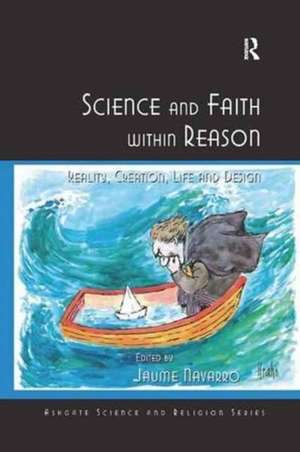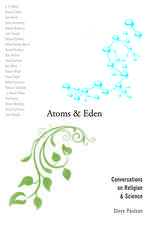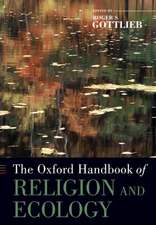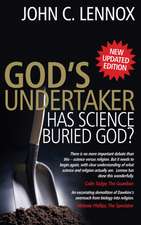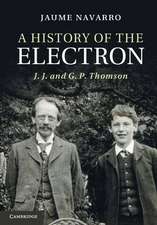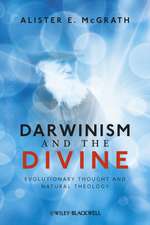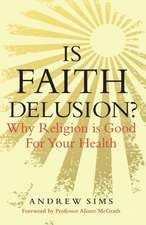Science and Faith within Reason: Reality, Creation, Life and Design
Editat de Jaume Navarroen Limba Engleză Paperback – 17 noi 2016
| Toate formatele și edițiile | Preț | Express |
|---|---|---|
| Paperback (1) | 469.34 lei 6-8 săpt. | |
| Taylor & Francis – 17 noi 2016 | 469.34 lei 6-8 săpt. | |
| Hardback (1) | 1054.71 lei 6-8 săpt. | |
| Taylor & Francis – 21 sep 2011 | 1054.71 lei 6-8 săpt. |
Preț: 469.34 lei
Nou
Puncte Express: 704
Preț estimativ în valută:
89.82€ • 93.43$ • 74.15£
89.82€ • 93.43$ • 74.15£
Carte tipărită la comandă
Livrare economică 15-29 aprilie
Preluare comenzi: 021 569.72.76
Specificații
ISBN-13: 9781138268630
ISBN-10: 1138268631
Pagini: 248
Dimensiuni: 156 x 234 mm
Greutate: 0.45 kg
Ediția:1
Editura: Taylor & Francis
Colecția Routledge
Locul publicării:Oxford, United Kingdom
ISBN-10: 1138268631
Pagini: 248
Dimensiuni: 156 x 234 mm
Greutate: 0.45 kg
Ediția:1
Editura: Taylor & Francis
Colecția Routledge
Locul publicării:Oxford, United Kingdom
Notă biografică
Dr. Jaume Navarro is a historian of science, trained in Physics and in Philosophy, working at the Max Planck Institute for the History of Science. He is also an affiliate researcher at the University of Cambridge. His current research evolves around the notions of matter in British science at the end of the nineteenth century and beginning of the twentieth, as well as the impact of the quantum revolution among British scientists. He has published three books and edited a fourth one. He is currently writing a book on the history of Physics, under contract with Cambridge University Press, and an edited volume (under review with MIT Press). He was a student and collaborator of Prof. Mariano Artigas, with whom he worked on Science and Religion Studies.
Recenzii
'A splendid collection of stimulating essays that stress the remarkable contribution of Mariano Artigas to the global dialogue on science and religion.' William R. Shea, University of Padua, Italy 'A posthumous homage to Mariano Artigas (1938-2006) was the occasion of a reassessment of the philosophies of cosmology and evolution viewed mainly from within the precincts of Roman Catholic philosophy of science. At stake are the multiple meanings of reality (both cosmological and biological) as viewed from different historical, religious and philosophical perspectives. Such a rethinking questions commonly accepted notions of the definitions and boundary conditions of both science and metaphysics.' Thomas Glick, Boston University, USA ’...there is much here that is very worthwhile, and one cannot help but enjoy the overall tone of a symposium whose contributors are wont to quote the likes of Jimi Hendrix and Joni Mitchell.’ Modern Believing
Cuprins
Introduction: ‘Science, Faith and Reason’ versus ‘Science and Religion’: The Question of Boundaries, Jaume Navarro; Part 1 On Reality; Chapter 1 Ontological Bridges and The Mind of the Universe, Rafael A. Martínez; Chapter 2 Reality at Risk, Roger Trigg; Chapter 3 Scientific Naturalism and the Need for a Neutral Metaphysical Framework, Robert A. Delfino; Part 2 On Creation; Chapter 4 Creation and Inertia: The Scientific Revolution and Discourse on Science-and-Religion, William E. Carroll; Chapter 5 A Victorian Theory of the Multiverse: The Unseen Universe and the Notion of Creation, Jaume Navarro; Part 3 On Life; Chapter 6 ‘Is It Tomorrow, or Just The End of Time?’: Paradigm Shifts in the Biological Sciences, Martinez J. Hewlett; Chapter 7 The Biologist’s Need for Philosophy as Seen through a Comparison of Aristotle’s Views on Living Things with Those of Modern Biologists, Marie I. George; Chapter 8 Stratified Cosmic Order: Distinguishing Parts, Wholes, and Levels of Organization, Jitse M. van der Meer; Part 4 On Design; Chapter 9 Evolutionism vs. Intelligent Design: Aporia and Method, Santiago Collado; Chapter 10 Intelligent Design Theory and ‘Imago Dei’: From Theodicy to a ‘Creationist Left’, Steve Fuller; epi Epilogue: When Science Becomes Religion, Karl Giberson;
Descriere
In this book, leading authors in the field of science and religion, including William Carroll, Steve Fuller, Karl Giberson and Roger Trigg, highlight the oft-neglected and profound philosophical foundations that underlie some of the most frequent questions at the boundary between science and religion: the reality of knowledge, and the notions of creation, life and design. In tune with Mariano Artigas's work, the authors emphasise that these are neither religious nor scientific but serious philosophical questions.
